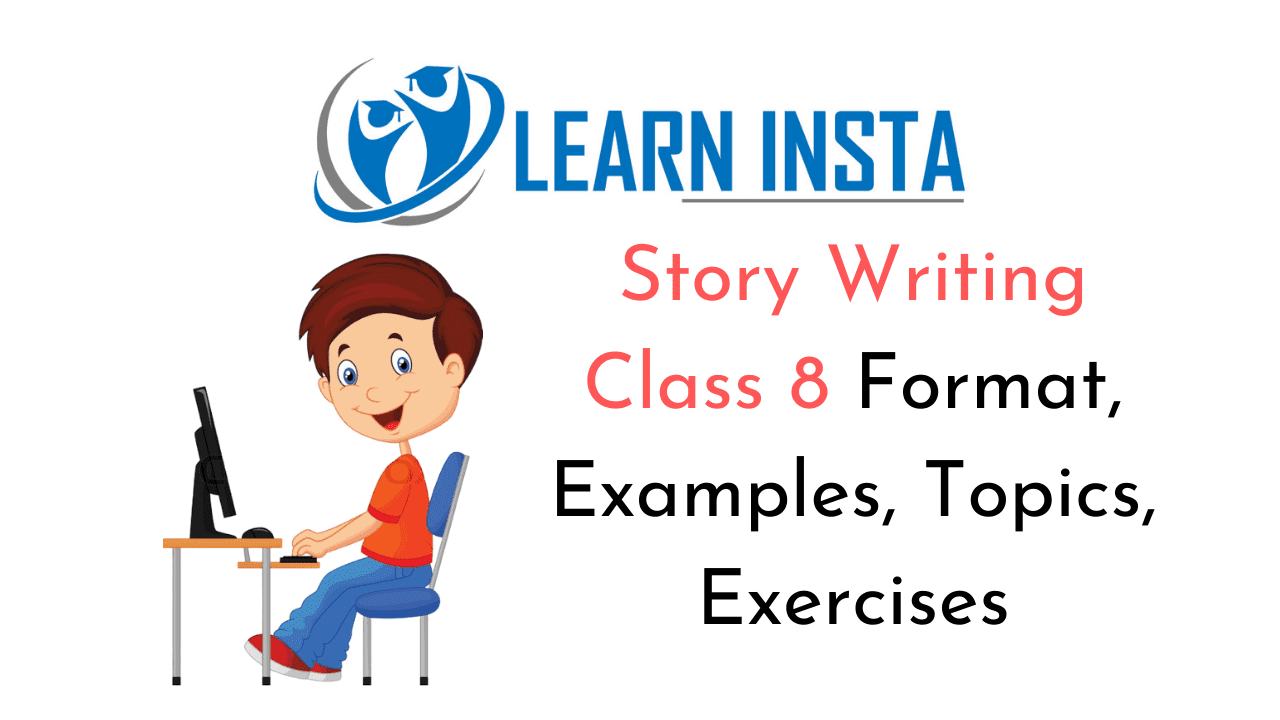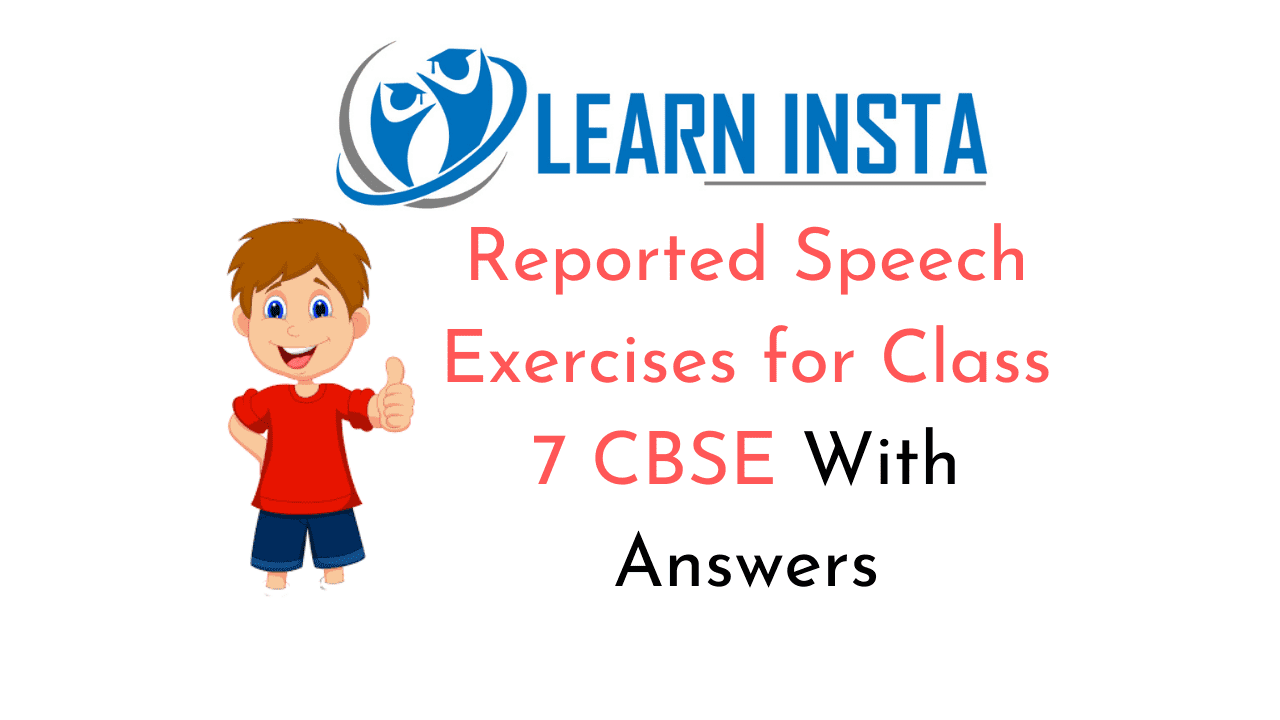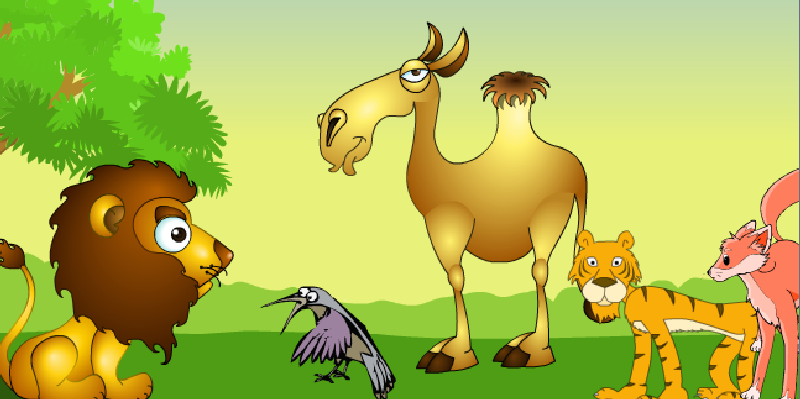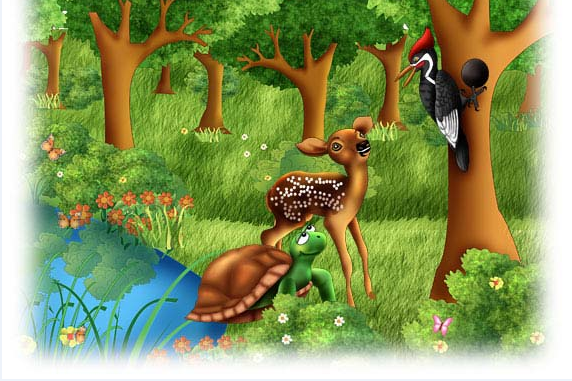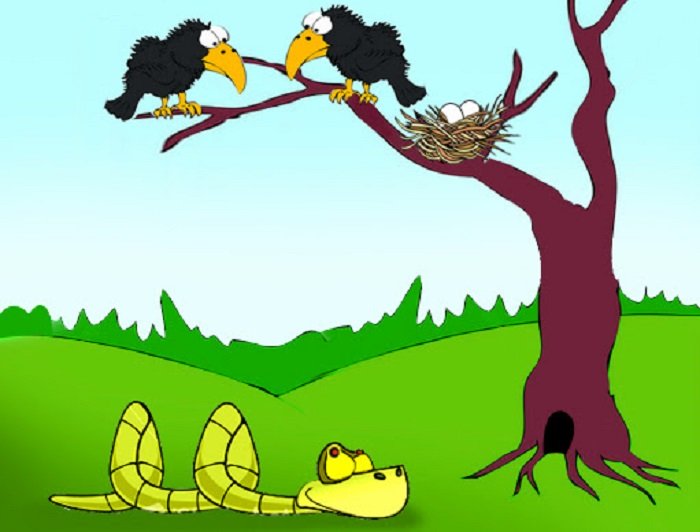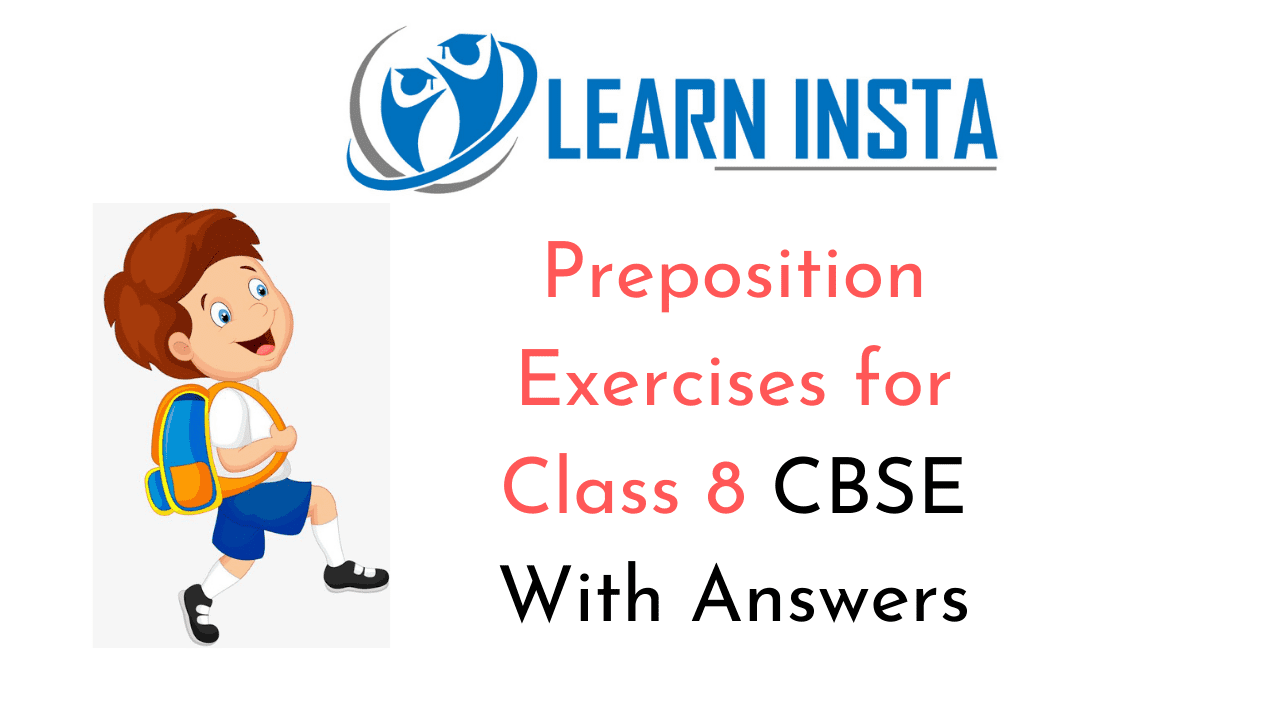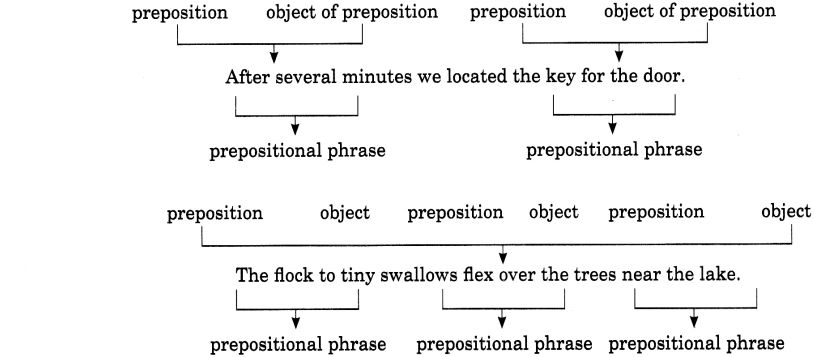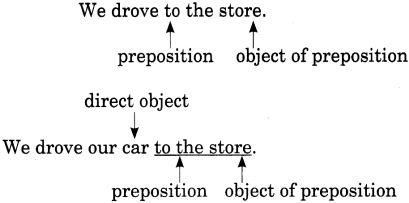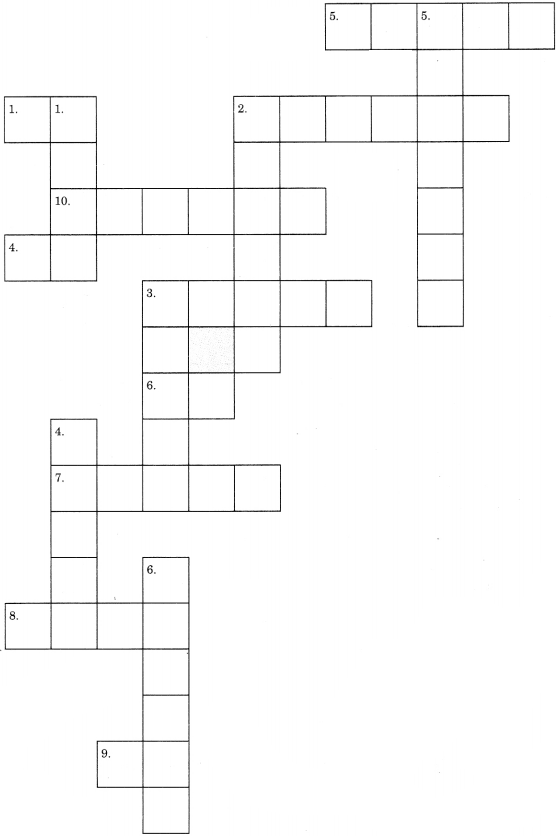
Essays are common in elementary, middle, high school and college, and one may even need to write essays in the business world. An essay is defined as “a short piece of writing that expresses information as well as the writers opinion.
This grammar section explains English Grammar in a clear and simple way. There are example sentences to show how the language is used. NCERT Solutions for Class 8 English will help you to write better answers in your Class 10 exams. Because the Solutions are solved by subject matter experts.
Essay Writing Class 8 Format, Examples, Topics, Exercises
An essay is, generally, a piece of writing that gives the authors own argument — but the definition is vague, overlapping with those of a paper, an article, a pamphlet, and a short story. Essays have traditionally been sub-classified as formal and informal.
There are seven steps to writing a successful essay:
- Pick a topic.
- Prepare an outline or diagram of your ideas.
- Write your thesis statement.
- Write the body.
- Write the introduction.
- Write the conclusion.
Writing :
For some, writing an essay is as simple as sitting down at their computer and beginning to type, but a lot more planning goes into writing an essay successfully. If you have never written an essay before, or if you struggle with writing and want to improve your skills, it is a good idea to go through several steps in the essay writing process.
For example, to write an essay, you should generally:
- Decide what kind of essay to write.
- Brainstorm your topic.
- Do research.
- Develop a thesis.
- Outline your essay.
- Focus on Coherence of idea.
- Edit your writing to check spelling and grammar.
Kinds of Essays The first step to writing an essay is to decide what kind of essay to write. There are several main structures into which essays can be grouped:
- Narrative Essays: Tell a story or impart information about your subject in a straightforward, orderly manner.
- Descriptive Essays: Focus on the details of what is going on. For example, if you want to write a descrip tive essay about your trip to the park, you would give great detail about what you experienced: how the grass felt beneath your feet, what the park benches looked like, and anything else the reader would need to feel as if he were there.
- Persuasive Essay: Convince the reader of some point of view.
- Comparative Essay: Compare two or more different things.
- Expository Essay: Explain to the reader how to do a given process. You could, for example, write an expository essay with step-by-step instructions on how to make a peanut butter sandwich.
Essay Writing Class 8 CBSE
My Dream
Dream is a vision of future. Everyone has dreams and pursues it with sincerity and preservance. “A.P.J. Abdul Kalam Dreams are not what you see in sleep. They are the things that don’t let you sleep”. Just like others, I have also nurtured a career dream from an early age. I aspire and wish to write and publish my works one day. I have never been very good when it came to verbal communication. It is embedded in my nature.
I do not like to be blunt or impolite even when someone says something to me. I choose to remain quiet during such situations. I am also a bit of an introvert and do not like opening up with everyone and that saves lot of my time. I could spare time for myself and brood over happenings. I am a keen observant. I figured out that a it is good way to vent out ones idea and imagination through writing. I began writing and found out that I am actually good at it.
It is hard for me to communicate my feelings verbally however it is quite easy for me to pen them down. Writing for me has now become a way of life I keep journaling all my feelings and this keeps me sorted. It has become more of a passion for me and I now aspire to turn it into my profession. Apart from writing bits and pieces about the happenings in my life, I also love writing stories and will soon come up with my own novel. My family is completely supportive about my career dream. It is rightly said, “Miracles start to happen when you give as much energy to your dreams as you do to your fears”.
My School
School is the temple of learning and gets trained for the professional and social life. My school was set up in 1990 on the donated land with the help of donated money. My school atmosphere is very pleasant and school environment is very clean and attractive. My school building is located in the centre of the play ground. On one side of the school there is a big garden having small pond. There are many colourful fish and other water animals in this pond.
My school is four storey building having classes for nursery to 12th class students. My school has one big library, principal office, head office, clerk office, one science laboratory, one computer lab, one common study room, one big lobby, teacher common room, one big sports ground, separate hostel for girls and boys in the school campus. My school has highly qualified and experienced teachers who teach us in very effective and creative manner.
My school has around one thousand students who always rank higher in the competitions held outside the school or inside the school. We all go to school in the proper uniform. We have two types of the uniform, one common uniform and other house uniform. My school timing starts at 7.50 am in the morning and 1.30 pm in the afternoon in the summer season and 8.50 am in the morning and 3.30 pm in the evening in the winter season. We daily go to the library for sometime where we practice reading creative books and newspaper for enhancing our skill and general knowledge.
Digital India
In the state of fast pacing world, would lag behind, if he does not watch his step. So to make the country a leader that shoulder the global responsibility with vision and smart brain, ‘digital India’ slogan came through a leader who can thrice the young geniuses with constructive approach. Digital India is a project started by the government of India on 1st of July, 2015 (from 1st to 7th of July as digital week) in order to transform India into a complete digitally empowered as well as knowledgeable country of the world. This project is interconnected by the various governmental departments such as IT, education, agriculture, etc in order to achieve a promising bright returns.
It is headed and planned by the ministry of communications and information technology. It is like golden opportunity for India when got implemented properly. In the very starting of the project launch, there was a plan by the state government to make available high speed internet connection in almost 250,000 villages and other residential areas of the country. The crucial role played by the ‘Bharat Broadband Network Limited (BBNL)’ in this project is really appreciable. In the digital India there would be easy digitization of data which will help in making things much more efficient and fast in the future.
It will reduce paper work, save man power and save time as well. This project will take a speed by tying the knot between government and private sectors. Huge number of villages interconnected with high speed network will really undergo a huge change from backward regions to complete digitally equipped areas. All the cities, towns and villages in India will get more tech savvy. The project has been planned to be completed by 2019 with the investment of leading companies (national or international).
My City
Delhi is my city which is beautiful situated on the right of the river Yamuna. It was called by various names Inderprastha is one of them. Delhi is an amalgamation of modernity and tradition. Its rich culture & tradition is restored with dignity and pride. It fascinates the tourist. The web of connectivity in turns of transport, people, heritage; it is a centre of political power.
It keeps on spreading and the regions of those neighbouring states are called NCR (National capital Region). Delhi is famous for its delicious food as it offers wide variety of cuisine. Business centre like Chandni chowk, Cannaught place, Janpath attracts the tourists. My city is one of the most happening cities in the country. Everything here is just awesome. I just wish the government here strengthens women security too.
Computer
The computer is one of the most important invention done in 20th century. It has speed up the activities and assisted humans in various ways. It controls machines helps in surgery. Computer is the wonderful and mastermind gift of the science to the whole human fraternity. It can be used to do any kind of works. It is very easy to handle by anyone and takes very less time to learn. Because of its easiness and high work efficiency, it is being used in many fields like offices, banks, hotels, educational institutions, shops, hospitals, commercial places, schools, colleges, training institutes, military establishments, military, industries, etc.
Many people buy laptop or desktop for their kids to learn about required things in their schools or playing computerized video-games, etc. Computer is a big dictionary and large storage device which we use to save any type of large amount of data like information, study materials, projects, photos, images, video, audio, songs, clips, games, and many more. It is an electronic machine which is able to calculate and solve big problems. It helps in enhancing our skill level and get information easily. It is very simple data based machine. It provides facility of many other tools like paint tool, text tool, etc which are very beneficial for the kids, children and students to use it more effectively.
We can use it for any big or small mathematical calculations very accurately. It is used to forecast the information about weather, in printing books, news papers, diagnosing diseases, etc. It is used to make online railway reservations, ticket booking, hotel or restaurant booking from any place all over the world. It is used by MNC companies for the accounting purpose, invoicing, pay rolls, stock control, etc. it is impossible to survive without computer and will be a gift for future generations.
Internet
Modern life has become easier and the people of the world have been indebted to the immense contribution of the internet Technology. Life has become move convenient with its advent. In the modern time, internet’ has become is one of the most powerful and interesting tools all across the world. It broke all the barriers be it political or social boundaries. The Internet is a network of networks and collection of many services and resources which benefits us in various ways. Using internet we can access World Wide Web from any place. It provides bulk of facilities to us such as E-mail, surfing search engines, accessing web portals, opening informative websites, being up-to-date, video chatting and many more.
However, we should know all the disadvantages and advantages of using internet in our life. Internet availability is very useful for the students however it is a big concern too for them sometimes it affects badly as objectionable and improper material also available. Most of the parents realize this type of danger however some not and use internet openly. So, children should use internet facility under the proper guidance of their parents.
We can use security system by using user name and password to prevent others to access our precious online data. Internet allow us to use any application programmes supporting instant messaging to send quick messages to friends, parents or teachers. However, in some other countries (North Korea, Myanmar, etc) it is totally prohibited to use internet as they think that it is bad thing for them. Sometimes, hackers can hack our secret computer information using internet without our knowledge even after password security. So with great powers come great responsibilities.
Dussehra
The celebration of Dussehra indicates the victory of Lord Rama over demon king Ravana. Lord Rama symbolizes truth and Ravana represents evil power. It is a ten days long festival, nine days of which is celebrated by worshipping the goddess Durga and tenth day as Vijay Dashmi when people celebrate the victory of Lord Rama over the demon King, Ravana. Dussehra is the most significant festival of the Hindu religion celebrated all across the country. It falls every year in the month of September or October twenty days earlier to the Diwali festival. It is a great ceremonial and religious festival celebrated by the Hindu people with the worship of goddess Durga.
The tradition and culture of celebrating this festival varies from region to region in the country. A huge preparation for this festival takes place which starts few days earlier to the exact date. A big fair is held for whole ten days or a whole month where people from far regions come to make shops and stalls of all things necessary for the people. It takes place in the Ram-Lila ground in every society or community where a huge fair is held with the dramatic show of legends of Dussehra for all days.
Paper models of the Ravana, Kumbhkaran and Meghnath are prepared in the Ram Lila ground and real people play the role of Rama, Sita and Lakshman. Everywhere lights are on and whole environment becomes full of sound of firecrackers. People and kids used to see the fair including Ram-lila whole night. Various important events of the life of Lord Rama are demonstrated by the real people in the Ram Lila. Thousands of men, women and children of the nearby regions get together in the Ram Lila ground to enjoy the show.
Christmas
Christmas falls every year in the winter season however people celebrate it with lots of joy, activities and happiness. It is one of the most important festival for the Christians of the year which they celebrate doing lots of preparations. The preparations of the celebration start a month ago and celebration ends 12 days after of the Christmas. Christmas is celebrated all across the world by the people, especially people of Christian religion, every year on 25th of December.
It is celebrated on the birth anniversary of the Jesus Christ, God of Christians who founded Christianity. At this day people decorate a Christmas tree, invites their friends, relatives and neighbours to enjoy and distribute gift. Santa Claus come on this day at mid night at 12 pm to everyone’s home and secretly keep gifts for the children in their houses. Children become very happy by getting gifts of their own likes in the early morning. All the schools, colleges, universities, offices and other government and non-government organizations become closed at this day.
Everyone enjoy it as a Christmas holiday by doing lots of activities throughout the day. It brings unity in society, family as it is celebrated in a collective way. People enjoy a big dinner party called feast. They prepare lots of delicious dishes, sweets, fruits, nuts, etc on the dining table. Everyone wear colourful dress, dance, sing, party and enjoy doing other adventurous activities. At this day, Christian people do pray to their God, confess about their all sins and sufferings, sing holy songs and meet each other with love.”
Teachers
Day Our earlier President, Dr. Sarvapalli Radhakrishnan was born on 5th of September so Teacher’s Day in India is being celebrated on his birthday because of his love and affection towards teaching profession. He was a great believer of education and highly famous as the scholar, diplomat, teacher and President of India. Teacher’s Day is a very special occasion for everyone especially for the teachers and students. It is celebrated by the students every year on 5th of September to honour their teachers. 5th of September has been declared as the Teachers day in India. It is his wish to celebrate his birthday as a teacher’s day.
It was considered as a great contribution towards the most dignified profession. Teacher’s day is a great occasion for celebrating and enjoying the relationship between teachers and students. Now a day, it is celebrated with the big enthusiasm and joy in the schools, colleges, universities and other educational institutions by both students and teachers. Teachers are given lots of wishes about long life from their students. In the modern time the celebration strategy of the teacher’s day has been standard. Students become so happy at this day and plan for the way of wishing their favourite teachers.
Some students wish their favourite teachers by giving them gifts, greeting cards, pen, diaries, etc. Some students wish their teachers by sending them audio messages, emails, video messages, written messages, through online chat, social media websites like Facebook, twitter, etc. Someone just say “Happy teacher’s day” orally to wish. We should realize the necessity and value of our teachers in our lives and celebrate Teachers’ Day every year to pay them homage for great job.
Teachers are more than our parents who mould the mind towards success. They become happy and get their success in life only if their dedicated students go ahead and spread teachers name all over the world through his activities. The teachers are like pillars and milestones who give strength and stride in a different way. We should follow all good lessons in our life taught by our teachers.
Children’s Day
Introduction:
Children’s day is celebrated on birth anniversary of the Pt. Jawahar Lal Nehru. When he realized children as future of country, he declared his birthday to be celebrated as children’s day in order to completely focus and improve the status of children in the country. Children’s day is being celebrated since 1956 on 14th of November every year all over India. Happy childhood make an adult into a confident one.
Children day celebration provides big opportunity to everyone especially neglecting people of the country. It force them to think about future of their children by realizing them duty and responsibility towards children. It makes people aware about the past status of children in the country and what should be real status of them for bright future of country. It is possible only if each and every individual would understand their responsibility towards their children. Various child centimes programmes and scholarships are also started on the day.
How it is celebrated:
It is celebrated with lots of activities (related to children to build them ideal citizens) everywhere in the country. Many competitions held in the schools regarding children health in every aspect like physically, mentally and morally. They are given opportunities to spread their wings and fly. They deserve the attention. Conclusion: Children’s Day is celebrated to make people aware that children are the real future of the country. So everyone should understand their responsibility towards their children and realize the importance of the children’s day celebration
Independence Day
Our country India is an ancient land with a glorious history. Our free spirits, rich tradition futuristic ideas made India a coveted land Ambitious Britishers have left the country after so many sacrifices. So it is our pious duty to celebrate this national festival with great pomp and show Independence Day is celebrated by the people of India every year on 15th of August as a National Holiday to commemorate the independence of India from the Kingdom of Great Britain on 15th of August in 1947. At this day, people of India pay heartily homage to the great leaders under their leadership, India became free forever. At this day, people celebrate in their own way by buying tricolour Flag, watching movies based on freedom fighters, listening to patriotic songs, bonding with family and friends, participating in special programmes.
Jawaharlal Nehru became our first Prime Minister after the independence of India on 17th of August 1947 who raised the Flag at Lahore Gate of Red Fort in Delhi and given a speech. This phenomenon is followed by the other subsequent Prime Ministers of India where flag hoisting ceremonies, parades, march past, salute by 21 guns and other cultural events are organized. Other people celebrate this day by raising national flag on their clothes, homes or vehicles. On the midnight of 15th August in 1947, Pandit Jawaharlal Nehru had announced the independence of India by reading out his speech on “Tryst with destiny”.
He said that after long years of slavery, it is the time when we will redeem our pledge with the end of our ill fortune. India is a country where millions of people live together whether they belong to various religion, cultures or traditions and celebrate this special occasion with great joy. At this day, as being an Indian, we should feel proud and must take an oath to keep ourselves loyal and patriotic in order to save our motherland from any type of attack or humiliation by other countries.
Road Safety
Human resource is always considered as precious for society and economy. To secure life is an asset to the nation. However, its security is compromised when a life is snapped at road. Death or trauma because of accidents end a life. Thus road safety is the prevention and protection of road accidents by using all the road safety measures. It is to secure people while traveling on the roads. Everyone should respect others while driving or walking on the road and take care of their safety. People safety on the road is one of the most important aspects in order to avoid road side accidents, injury, and death.
We can judge the importance of road safety on the basis of national statistical data about total reported accidents and death. Almost 42% cases involve pedestrians and one way road users. There are various methods of creating awareness among common public such as seminars, workshops, students education by adding basic road-safety lessons to syllabus, make people aware about green cross code means stop, look, listen, think and then cross, learning of traffic lights, understanding of road signs, etc.
Following all the road safety measures help a lot to protect all the road problems. Some effective measures of road safety are like basic awareness about vehicle, defensive driving according to weather and road conditions, use of vehicle lights and horn, wearing seat belt, well use of vehicle mirrors, avoid over-speeding, understanding road lights, maintaining distance of vehicle on road, proper understanding of handling crisis situation, telecast of awareness documentaries on TV, etc.
Human Rights
The UN adopted Universal Declaration of human rights 1948. Human rights is a grave concern as it is considered as Natural right. It is further put into two categories as natural rights and civil rights. Human rights are norms that illustrate certain standards of human behaviour. These are fundamental rights to which every individual is inherently entitled just because he or she is a human being. These rights are protected by law.
Here is a look at some of the basic human rights:
- Right to Life
Every individual has the inherent right to live. Every human being has the right of not being killed by another person. - Right to Fair Trial
Every person has the right to fair trial by an impartial court. This includes the right to be heard within a reasonable time, right to public hearing and right to counsel. - Freedom of Thought, Conscience and Religion
Every person has the freedom of thought and conscience. He/she also has the freedom to choose his/her religion and is also free to change it at any time. - Freedom from Slavery
Slavery and slave trade is prohibited. However, these are still practised illegally in some parts of the world. - Freedom from Torture
Torture is prohibited under the international law. Every person has freedom from torture.
Other universal human rights include right to liberty and personal security, freedom of speech, right to remedy by competent tribunal, freedom from discrimination, right to nationality and freedom to change it, right to marriage and family, freedom of movement, right to own property, right to education, right of peaceful assembly and association, freedom from interference with privacy, family, home and correspondence, right to participate in government and in free elections, right of opinion and information, right to adequate living standard, right to social security and right to social order that articulates this document. These organizations take steps to protect these rights. If they find violation in it.
Swachh Bharat Abhiyan
Swachh Bharat Abhiyan is a cleanliness drive aimed to cover 4041 statutory cities and town all over India. Swachh Bharat Mission or Swachh Bharat Abhiyan is a campaign run by the government of India as a massive mass movement to initiate the theme of cleanliness all through the India. This campaign was launched in seeking the way to create a Clean India target by 2019, 2nd of October means 150th birthday anniversary of the Mahatma Gandhi. The father of nation, Mahatma Gandhi was dreamed to make India a clean India and always put his hard efforts towards swachhta in India.
This is the reason, why Swachh Bharat Abhiyan was launched on 2nd of October (the birthday of the Mahatma Gandhi). To complete the vision of the father of the nation, Indian government has decided to launch this campaign. The mission has targeted aims like eliminating the open defecation, converting insanitary toilets into pour flush toilets, eradicating manual scavenging, complete disposal and reuse of solid and liquid wastes, bringing behavioural changes to people and motivate health practices, spreading cleanliness awareness among people, strengthening the cleanliness systems in the urban and rural areas as well as creating user friendly environment for all private sectors interested for investing in India for cleanliness maintenance. This mission has an interesting theme of inviting nine new people by each and every involved people in the campaign and continuing this chain until the each and every citizen of India gets involved in this campaign.
Save Water
Water is present all around the globe in various forms like iceberg snow, sea, river, underground cource, yet water scarcity is always there because if we have 66% of earth covered with water only 3% fresh drinking water is available. Thus save water or conservation of water has been very essential to maintain the existence of life on the earth because no life is possible without water. Water helps in the continuity of life cycle on the earth as an exception in the whole universe According to the conducted by United Nation, it is found that girls in the Rajasthan do not go to school as they have to go long distances to get water which eats their whole day so they do not get time for other purposes.
So we can say that water scarcity is also the reason of illiteracy, suicide, fights and other social issues in India and other developing countries. In such regions of water scarcity, the new generation children are not achieving their basic right to education and right to live happily. As a responsible citizen of India, we should make ourselves aware about all the problems of water scarcity so that we all may take a pledge and join hands together for water conservation.
There is a true saying that a small effort of everyone can give a big result just like many drops of water form a huge water body like pond, river and sea. We do not need to make extra efforts for water conservation, we only need to bring some positive changes in our daily activities like ensure the tight closing of the tap after every use, use of bucket and mug while washing anything or bathing instead of using shower or pipe. A little effort from the end of millions of people can give a big positive result towards the save water campaign
Beti Bachao Beti Padhao
Prime Minister Narendra Modi has launched the scheme Beti Bachao Beti Padhao. It is a very effective scheme aims to improve the number of girl child, save girl child, eradicate female foeticide, give them proper security and education, personal and professional development, etc all over the country. Beti Bachao Beti Padhao is a government scheme launched by the PM Narendra Modi on 22nd of January on Thursday, at Panipat, Haryana. This scheme has been launched by keeping in mind the drastic condition of girl child in the Indian society.
According to the statistics, the ratio of girl child per male child (of age group 0-6 years) was 945/1000 in 1991 whereas it remains only 927/1000 in 2001 and again reduced to 918/1000 in 2011. If we see the census report we see that the ratio of girl child is decreasing continuously per each decade. This scheme has been implemented in 100 selected districts of the country (by the joint initiative of ministry of Human Resource Development and Health and ministry of Women and Child Development) through a national campaign in order to cover all the states and UTs.
There are some positive aspect that this scheme would be proved as a great start to remove social issues against girl child. We hope that there would be a day when no girl child would be killed, uneducated, insecure, raped, etc because of socio-economic reasons. Hence, Beti Bachao Beti Padhao scheme is aimed to make girls independent both socially and financially by reducing the sex discrimination all over the country.
Mahatma Gandhi
Mahatma Gandhi was a great freedom fighter who spent his whole life in struggle for the independence of India. He was born in the Indian Hindu family on 2nd of October in 1869 in the Porbander, Gujarat. He lived his whole as a leader of the Indian people. His whole life story is a great inspiration for us. While fighting with Britishers he took help of his great weapons like non-violence and Satyagraha movements to achieve freedom. Many times he got arrested and sent to the jail but he never discourages himself and continued fighting for national freedom.
He truly understood the power of unity in people (from different castes, religions, community, race, age or gender) which he used all through his independence movement. Britishers were forced to quit India forever through his mass movements on 15th of August in 1947. Since 1947, the 15th of August is celebrated every year as the Independence Day in India. After the independence of India in 1947 as he was assassinated by one of the Hindu activists, Nathuram Godse in 1948 on 30th of January. He enlightened our life with a fact that everything is possible with the non-violence and unity of people. Even after getting died many years ago, he is still alive in the heart of every Indian as a “Father of the Nation and Bapu”.
Mother Teresa
Mother Teresa was a very religious and famous woman. She is one the great personalities all over the world. She had served her life a true mother by providing kind services of full dedication and love to the needy and poor people of the Indian society. She is also popularly known as “saint of our times” or “angel” or “a beacon in the world of darkness”. Her birth name was Agnes Gonxha Bojaxhiu who became later famous as the Mother Teresa after her great works and life achievements. She was born on 26th of August in 1910 Skopje, Macedonia in a religious catholic family.
Mother Teresa was decided to become a nun in her early age. She had joined a convent in the year 1928. and then came to India (Darjeeling and then Kolkata). Once, while she was returning from her visit, she started thinking some ways to alleviate people suffering in the slum. She was well known of her social restrictions so she prayed to the God for getting some guidance and direction. Finally she got a message (to leate convent and serve needy people) from the God on her way to Darjeeling on 10th of September in 1937. After that she never looked back and started serving to the poor people.
She chose to wear a simple dress of white sari having blue border. Soon, young girls started joining her group in order to provide a kind help to the suffering people of the poor community. She planned to make a dedicated group of sisters which would be always ready for serving to poor in any condition. The group of dedicated sisters later known as “Missionaries of Charity”.
APJ Abdul Kalam
Dr. APJ Abdul Kalam is called as the a Missile Man of India and the People’s President of India. His full name was Avul Pakir Jainulabdeen Abdul Kalam. He was a great scientist and 11th President of India. He was born in Rameswaram, Tamil Nadu, in a poor Tamil Muslim family on 15th of October in 1931 to the Jainulabudeen and Ashiamma. He started supporting his family financially in his early age. He has completed his graduation from the St Joseph’s College, Tiruchirappalli in 1954 and Aerospace Engineering from the Madras Institute of Technology, Chennai in 1960. He joined the DRDO (Defense Research and Development Organization) as a scientist where he designed a small helicopter for the Indian Army.
He also worked under Dr. Vikram Sarabhai as part of INCOSPAR committee. Later, he joined the Indian Space Research Organization (ISRO) in 1969 as project director of India’s first indigenous Satellite Launch Vehicle (SLV-III). His great contributions for the development of ballistic missiles in India, he will be forever known as the “Missile Man of India”. The successful Pokhran-II nuclear tests of 1998 have also involved his important role. He has been the third President of India who awarded with the Bharat Ratna.
(first Dr. Sarvapali Radhakrishnan 1954 and second Dr. Zakir Hussain 1963). He has also been awarded with the Padma Bhushan in 1981 and Padma Vibhushan in 1990 for his contributions at ISRO and DRDO as well as the Government of India as a scientific advisor. He has written many books such as Wings of Fire, Ignited Minds, Target 3 Billion in 2011, Turning Points, India 2020, My Journey, etc. His love for childred is evident after he became the president of India. He often interacted and motivated them.
Taj Mahal
Taj Mahal is the love symbol of the great king of Agra. It is built using white marble which gives it attractive and amazing look. It has been called by the Rabindranath Tagore as “A Dream in Marble”. It is a real heaven on the earth which has been mentioned as the UNESCO World Heritage Site. It was built by the great Mughal emperor, Shah Jahan, in the memory of his dead wife, Mumtaz Mahal. It is considered that he had loved her wife so much and became so sad after her death. He started living without food and water. He decided to keep her all the memories in front of his eyes then built Taj Mahal in front of the Agra Fort in the memory of his eternal love.
He was used to saw Taj Mahal daily from Agra Fort and remembered his wife. Taj Mahal took many years to get completed. This historical monument is a symbol of love of Shah Jahan and Mumtaz Mahal. The surrounding environment of the Taj Mahal is so natural and attractive. It is located on the bank of Yamuna River in the city of Agra, UP. The Taj Mahal has been built using royal deigns by the ideas of many artists and artisAnswer:Lots of decorative grasses and trees enhance its beauty and fragrance of the environment.
There are also some charming water fountains set up in the middle of the cemented footpath in front of the Taj Mahal building. These charming water fountains make the entry to the great mausoleum. Taj Mahal is one of the best and most beautiful tourist destinations of India. There are many wonderful – historical monuments in India however Taj Mahal is only one. It is a great artistic charm which attracts various people’s mind towards it every year. It is the most fascinating monument of India has been chosen as seventh wonder of the world.
My Father My Hero
Introduction My father is my mentor, my hero and my best friend. He has been there for me at every step in life and supported me in all my decisions. He has taught me a lot and continues to shower his words on wisdom. My Father Believes in Keeping Life Simple My father believes in ‘leading a simple life. Though he earns well and can afford a luxury car and a big bangalow. However, he still continues to live in a small flat.
His needs are minimal and he has taught us the same values. He believes in spending a good amount of his salary to social work. He is a part of a non-profit organization that is dedicated towards providing food and education to the underprivileged children. Every
Saturday he visits these children and distributes fruits and other eatables among them. He also gives free mathematics classes to these students in the charity school run by the organization. Many a times, he also takes us along. He has taught us how to share and care. I and my sister have inculcated this value from him. We also do our bit to light up a smile on the faces of these children. This is true joy for us. No amount of toys, holiday trips and visits to restaurants can render such a joyful feeling.
Just like my father, I also love keeping it simple. I have understood that “needs can be met but greed cannot”. I am not keen on buying new bags, clothes and accessories every now and then. I only buy things when I truly need them. I love accompanying my father to the places he visits for his charity work and wish to join one such non-profit organization as I grow old. Conclusion I am proud of my father. He is a noble soul who is dedicated towards helping others. His teachings and values inspire me to become a better human being.
Sports
Sports and good education both together become the way to achieve success in the life of a child. Everybody understands that, sports and games mean only the physical and mental fitness. However it has many hidden benefits as well. Sports mean not only the bodily exercise however it means to promote the concentration level of the students towards study. There is a common saying about the sports that “A sound mind in a sound body means there should be a well working mind in the fit body in order to go ahead and get success in the life.
Playing sports brings highest level of confidence and teaches us discipline which remains with us whole life. Motivating children for the sports and make them interested in the games should be started at home and school level by the equal participation of the parents and teachers. Sports and games are of many types and named according to the rules and ways of playing them. Some of the sports are cricket, hockey (national game), football, basket ball, volley ball, tennis, running, skipping, high and low jumping, discus throw, badminton, rowing, swimming, kho-kho, kabaddi, and many more.
Sports are the best ways to deal with the losses and profits in the life by making the balance between body and mind, excitement and sorrow. Playing sports for some hour on daily basis has been made necessary in the schools for the welfare of the children and better future of the country. Sports is given its space in curriculum and good sports person are ranked in their performance in co – cur ricular activities.
Cricket
Cricket is the exciting outdoor game in India and played in many countries all through the world. Indian are crazy for their cricket love. The roads become empty when it comes to finals. The frenzy of cricket fans is evident as they celebrate victory as do they celebrate Diwali. It is a wonderful game played using a bat and a ball in the open space in the big field. It is my favourite sports. I generally used to see only cricket on the TV whenever any national or international cricket competition takes place. In cricket there are two teams having 11 players in each team. One team starts batting first and another team do bowling according to the toss winning. The team who win toss do batting first however both of the teams can do batting alternatively.
There are many rules in the cricket and one cannot play the cricket without knowing the rules and regulations properly. It is played well when play ground becomes dry however there exist some problems when ground gets wet. One batsman gets chance to do batting until he gets out of the game. Whenever match starts everyone’s enthusiasm runs high and a high pitch sound of people gets spread all over the stadium, especially when favourite batsman does through a chauka or chhakka ball. Sachin Tendulkar is my favourite cricketer and would be. He had made a new record in the cricket history of India.
I completely forget to eat anything for whole day whenever he played his cricket match on national or international level. Cricket is a hard however simple game if practiced on regular basis. I too, very fond of playing the cricket and play daily in the evening in the play ground near my house. My parents are very helpful and motivate me always to play cricket very well.
Summer Vacation
Summer vacation is the happiest period of the year for me. I like it most because I get protected from the high heat harming sun rays all through the day in summer season. I really enjoy the whole s with my loving parents and brother. One could pursue his wobby during vacations as it is relaxing period for every member of the family. It gives me chance to enhance my skill and knowledge in the areas other than the studies. I also join tuition classes to improve my weak subjects.
I enjoy my summer vacations by visiting new places of my country. We plan to visit my home town’s. We also go to visit my native place where my sweet grandparents live. I like very much to spend some quality time with them and eat fresh vegetables and fruits they crop in their fields. I will click some memorable snaps with them and keep with me forever. Summer vacation brings lots of happiness to me every year and gives me enough time to meet my all near and dear ones.
Pollution
Pollution is contamination are induced into the natural environment that cause adverse changes. It could be in the form of smoke, dust, sewage, unbearable noise. Pollution has become the most serious issue as everyone is facing lots of health hazards in their daily life. Various types of pollutants from the industrial garbage and other activities are contaminating our natural resources like air, water, soil, etc. The rate of pollution in the cities is higher than the villages because of the vehicles transportation. Fumes arise from the running vehicles, factories and other industries are affecting the clean air of cities which is not fit for the breathing.
Soiled water from the big sewage system, other garbage from the households, by-products from the factories and industries are directly mixing to the rivers, lake and oceAnswer:Most of the solid wastes, garbage and other unused things are thrown away by the people on the land which cause soil pollution and affect the crop production. Most of the people in the cities spread noise pollution to a great extent during their birthday, marriage or other occasions just for their short time happiness.
The quality of life is worsening day by day as pollution acts as a devil which causes various health ailments like high blood pressure, kidney disorders, respiratory disease, cancer, epidemics, skin diseases, etc. Thus pollution needs to be put under control before it destroy us.
Save Earth
Earth is a planet that is a home to various species. It is full of all basic resources for continuation of life. Earth is the only known planet in this universe where life is possible as it has basic necessities of life. We need to maintain the natural quality of our mother earth in order to continue the healthy life here. Save earth save environment and save earth save life are the most famous slogans to increase awareness about save earth among people. There are various means the condition of our earth is getting declined day by day due to the pollution, greenhouse gases, etc. It is generating the harmful impact on environment and thus health of people.
It is the responsibility of human beings to keep earth safe, clean and natural. Earth Day is a global annual observance celebrated on 22nd of April since 1970 to protect the environment and save earth. The aim of this event is to inspire people for healthy earth’s environment. So, We should not waste water and use only according to the requirement. We should wash dirty clothes only and in the cold water. In this way, we can save many gallons of water per day. People should share private cars and generally use public transport in order to reduce the emission of greenhouse gases.
People should use bicycle to perform work in local areas. People should follow 3R methods means reduce, reuse and recycle things. People should make compost which is a great natural fertilizer for the crops. We should use Compact fluorescent light bulbs (CFLs) instead of common bulbs as they are more durable and use two-third less energy which will reduce the use of electricity and greenhouse gases emissions. Use of electric heater or air conditioner unnecessarily should be avoided.
We should switch off lights, fans and unplug other electric appliances to use less electricity. We should plant more trees in the surrounding areas to reduce pollution and effect of green house gases. We have not inherited the earth. We are caretaker of it for the future generations.
Disaster Management
The vastness of Indian Territory requires safety measures before hand. India is a disaster prone country. Which can be classified as- The disaster can come in any form, earthquake Tsunami, epidemics or man-made. It spread from Mountains to desert, deserts to seas, coast line of India is also big. It touches the boundary of about countries. A disaster is a serious disruption in the functioning of a community and society as a fall-out of widespread human, material, or environmental losses that exceed the ability of the affected population to cope with its own resources.
There are two majorly two types of disasters: one of them is Natural disasters: The disasters caused due to natural reasons which are beyond the control of humans including floods, hurricanes, earthquakes and volcano eruptions that have immediate impacts on human lives. Man-made disasters also known as the complex emergencies are the disasters caused due to major accidents like fires, the breakdown of authority, looting and attacks, including conflict situations and war. Disaster management is a continuous phenomenon of mitigating the impact of the disasters.
Disaster management calls for collective and co-ordinated efforts. A number of activities need to be undertaken in the event of disaster. These include co-ordination, command and control, rapid assessment of damage, restoration of power, tele-communication and surface transport, deployment of search and rescue teams, medicals and Para-medical teams, arrangements for drinking water and food material, setting up of temporary shelters, sanitation and hygiene identification and earmarking of resources, last but not the least, maintenance of law and order is equally important.
Quick and timely response is the essence in providing immediate relief and rescue operations, to save human lives and mitigate miseries as soon as possible. India has set up many departments and organizations for the same i.e. National disaster management author ity (ndma), national remote sensing centre (nrsc), central water commission (cwc) etc. And due to the presence of so many authorities it is not feasible for all of them to take steps in a single direction.
Conclusion Disaster management has assumed great importance in recent times. They are highly equipped well trained and are performing to an excellent level. It cannot avert the outbreak of disaster, but can mitigate its impact to a large extent.
Honesty is The Best Policy
According to the saying of honesty is the best policy, being honest in the life lead towards success. Honesty is a backbone of a successful society and hard working relationship. An honest man handles situations with courage and confidence. Being honest help us to be trusted by the people in our surroundings or closer to us. Honesty is not only means to tell the truth however it means to care and honour the feeling of the associated people in our life. We should respect everyone without caring their status and talents. Honest people are al ways in demand for doing relationship, business or other work.
Several bad or good experiences in the life help people to learn more about how to be honest in their dealings with fellowman. Being honest shows the good and clean character of the person as honesty helps to develop quality property in the behavior. Honesty changes the person from outside as well as inside without giving any harm and keeps the mind very peaceful. A peaceful mind gives satisfaction to the person by making a nice balance among body, mind and spirit.
honest people are respected in their family and society. However, a dishonest person always faces difficulty and bad words of the people in society. Honesty is the important tool of living a successful life, Honesty and good character are the jewels of an honest person life.
Unity is Strength
Introduction :
The importance of staying united in every situation is emphasized through the proverb – Unity is Strength. There are many historical evidence that affirms that those whoever united achieved the unachievable. Unity boosts the morale, channelize the energies constructively.
Importance of Staying United It helps build a better life and countering them can create difficulties. As is family all the members stand united and help each other with their tasks, each one of them will benefit if we look around, the families where people respect and take care of each other are happier. The children there get a healthier environment which is essential for their all round development and the adults in the family also live a wholesome life. They depend on each other and take it as their responsibility to fulfil all their duties with joy. They do not complain or con spire against each other.
On the other hand, the families where people don’t stand by each other and are busy trying to put the others down do not only ruin their own life but also that of their coming generations. People belonging to such families often feel lonely and end up in depression. Conclusion It is time people should recognize the importance of staying united and imbibe it in their life to live a healthier and happier life.
Health is Wealth
Now-a-days, a good health is just like a boon given by the God. It is very fact that good health is real asset of life. Good health is considered as the precious earning of a human throughout his/her life. If losses his health, he has lost all the charms of life. In order to maintain a good health we need to do regular physical exercises, yoga, meditation, balanced food, good thoughts, cleanliness, personal hygiene, regular health check ups, proper sleep, rest, etc.
If one is healthy, he/she does not need spend money on his/her health in buying medicines or visiting doctors. However, on the other hand a lazy, diseased or sluggish person needs to spend more money throughout his life. He is also disliked by his state of health.
A good health means healthy in all aspects like mentally, physically, socially and intellectually. A good health provides us freedom from all the sickness and diseases. A good health is the feeling of mental, physical and social well being. It is a costly and most precious gift of the life and necessary for living a purposeful life.
A good health allows us to work effectively saving time. A good health is the real pleasures and charm of life. So, it is good to maintain the good health to get rid of all the complications of body as well as successfully face all the challenges of life.
Work Is Worship
As we all know about the famous proverb ‘work is worship’ which means that without work no one can seek the blessing of God. Man is considered as the most intelligent creation of the God. The life of man is completely depends on his hard work. Man cannot get anything without work It is truly said, ‘An idle man’s brain is the devil’s workshop. All the inventions and discoveries in the field of science are resulted as the human’s continuous hard work with patience. Constant work in the right direction and in the right field leads people towards successful career and further progress in future.
Work is not like worship but work is worship which we all should follow in our life. All the great personalities’ lives are the example of hard works they have done during their lifetime. Continuous hard work does not only lead to the better results but also increases the self-confidence level.
Developed nations all over world (like USA, Japan, China, Germany, etc) are only through their hard works individually and collectively. Lord Vishwakarma is worshiped in India as the great god of the workers to get blessings in order to continue the hard work. However, most of the people become very lazy and expect more than their work.
A Friend in need is a Friend Indeed
College life becomes most popular among youngsters as we become surrounded by the good friends and enjoy a : lot. Good friends live together happily and participate in the activities together. The proverb A Friend in Need is a Friend Indeed indicates the quality of a true friend. Earlier, it is hard to recognize the quality of a friend but not so tough. This proverb tells us that people who helps you in the crisis time are really true ones than those who just want to stay in your fun time.
A true friend always gives full support whenever we are in need. We cannot recognize that whether a friend is good or bad but during difficult times they can naturally be recognized. Every one of us generally needs a true friend who can help us during bad times. In the difficult phases of the when it seems to be out of that, we need help from others. This is the time when we miss a friend who can take us out of the difficulty.
True friends are really of much importance; whenever we become absent someday in the school, they discuss important topics and helps us with all the notes and materials done in the class. No one can really help us like a true friend as they share all the highs and lows of the life. Thus, we learn from this proverb that. A friend is a true friend only when he she helps us in the need. True friends always give good memories and reasons to be in friendship forever
Value of Time
There is a common and true saying that “Time and Tide waits for none” which means time never waits for anyone, one should have to go with time side by side. Time costs us a lot as once it goes never comes back. It never stays. It is unbounded means no one can limit the time to any boundation. Time makes everyone to dance around. Nothing in this world can defeat it or win from it. Time is called as the strongest thing in this world which can damage and improve anyone.
Time is very powerful; one can kneel down in front of it but never defeat it. We are not able to measure its potential because sometime only one moment is enough to win where as sometime it takes whole life to win. Only one moment is enough to create a difference between life and death. Each and every moment brings lots of golden opportunities to us, we just need to understand the indication of time and use it. It is favorable for those who understand its value and use it properly however unfavorable for the idle people who waste it or use it improperly.
Every moment is a big store house of the new chances in the life. So, we never let go off such precious time and make full use of it. We should never allow our golden time to pass away from us unnecessarily. We should utilize time positively and fruitfully to go to our destination. The best way to utilize time in useful manner, we should make a time table to do everything at right time.
Good Manners
Introduction :
Good manners refers to the polite and good social behaviour which plays important role in maintain smooth, easy and positive relationship. Good manners help us to win the heart of people in the crowd and give us a unique personality. Good manner makes us person of pleasing and obeying nature which is genuinely loved and appreciated by all in the society.
What are Good Manners?
Good manners are closely linked to moral rules. A person with good manners shows respects towards feelings and sentiments of people living around. Modesty and courtesy are the essential traits of a well behaving person. Practicing good manners and following them all through the day bring sunshine and add qualities to the life. He/she always becomes mentally happy as good manners enrich his/her personality. Good manners should be inculcating especially in the children from childhood.
Teaching good manners to all the students is a boon to them and country from parents and teachers as they are the bright future. Lack of good manners among youths of the country lead them at the wrong path. Practicing good manners cost nothing but pay us a lot all through the life. Some of the good manners include magical words. like: “Sorry”, “thanks”, “please”, “excuse me”, etc. we should use these magical words. Whenever required without getting late in order to maintain a happy relationship.
- We should always support people who are in. pain.
- We should be disciplined and punctual in daily life.
- We should always compliment others for their good behaviour and qualities.
- We must listen to people very attentively who are talking to us.
- We should take permission before touching or using the things of someone else.
- We should always respond with a smile to other’s questions.
- We should never interrupt between the meetings of elders and must wait for our turn.
- We must be respectful to the elders (whether in family, relationship or neighbors), parents and teachers.
- We must knock the door before entering to other’s home or bedroom.
Conclusion :
Practicing good manners take nothing but give much more all through the life. People with polite and pleasant nature are always asked by the large number of people as they put magnetic influence over them. Thus, we must practice and follow good manners.
Nature
Nature is the most important and integral part of the lives of everyone. Everyone has been blessed with the true love of God in the form of beautiful nature. We should never miss the pleasure of enjoying the nature. Nature has been the lost favourite topic of the works of many famous poets, writers, painters and artists. Nature is the beautiful creation of the God which he blessed to us as a precious gift. Nature is everything which surrounds us like water, air, land, sky, fire, river, forests, animals, birds, plants, sun, moon, stars, sea, lake, rain, thunder, storm, etc. Nature is very colourful and has both living and non-living things in its lap. Everything in the nature has their own power and uniqueness provided by the God.
It has its many forms which are changing by season to season and even from minute to minute such as sea looks bright blue in the morning but by noon it looks emerald green colour. Sky changes its colour all through the day from pale pink at sunrise, dazzling blue in late morning, bright orange in evening at sunset and purple by twilight. Our mood also gets changed according to the nature such as happy and hopeful at sun shine, rainy season and spring season. We feel heartily happy at moonlight and little bored and tired in high sun light. Nature has some powerful transformative power which changes our mood and behaviour accordingly.
Nature has power to recover the patients from their diseases if they are provided with the required and pleasant environment. Nature is very essential for our healthy life so we should keep it clean and conserve it for our future generations. We should cut trees and forests, should not despoil the ocean, rivers, should not make hole in ozone layer, should not increase green house effect, global warming and many more through our selfish activities. We should get fully aware about our nature and try our best to keep it natural so that it can nourish life on the earth forever.
Rainy Season
Rainy season is the lovely season for all of us. Generally, it begins in the month of July and ends in September. It comes after the hot summer season. It brings new hopes and life to the living things which are most probably become dead because of the heat of summer sun. This season gives lots of relief through its natural and cool rain water. All the ponds, rivers and streams become full of water which was dried due to the heat. So, it gives new life to the water animals. It returns greenery to the gardens and lawns back. It gives environment a new attractive look. However, it is so sad that it stays only for three months. Rainy season is of great importance for the Indian farmers as they really need more water for their crops cultivation.
Farmers generally make many pits and ponds to collect rainy water for further use in the fields. , Rainy season is actually a boon from the God to the agriculturists. They worship Rain God, if it does not rain after and finally they get blessed with the rains. Sky looks cloudy as lots of white, brown and dark black clouds runs from here and there in the sky. Running clouds contains lots of rain water and rains when mansoon comes. Rainy season adds scenic beauty to the environment.
I like greenery too much. I generally go outside with .my family to have some enjoyment of the rainy season. Last year I went to the Nainital and had amazing experiences. Manywatery clouds were touching our body in the car and go outside from window. It was raining very slowly and we enjoyed a lot. We also enjoyed water boating in the Nainital. The whole Nainital was looking amazing full of greeneries.
Junk Food
The word junk food speaks itself a lot and indicates its harmful nature to the health. Junk foods are trash food to the health because they are high in calorie, fat, cholesterol, sugar and salt components. Nowadays kids and teenagers are more prone to eat junk foods daily in bulk amount. They are leading their lives towards danger through their unhealthy lifestyle. They generally eat chips, french fries, cracks, snack, chawmin, burger, pizza, pasta, and other junk foods whenever they feel hungry. No junk foods are beneficial and provide no nutritional value.
It affects the health in all ways of the people f any age group, weight and health condition. Junk foods are considered as high in calories however one who eat end up easily getting exhausted and need more food frequently. Junk food does not provide appropriate level of energy thus the eater develop tendencies of craving more food frequently. What we generally acquire from the junk foods are unhealthy fats and not healthy ingredients thus we feel lack of oxygen which causes poor brain functioning.
We absorb much cholesterol from such type of foods which causes plaque formation in the arteries and creates problems for the heart to pump normal amount of blood. That’s why we feel high level fatigue. High level of bad cholesterol destroys our liver and put more weight at the same time. According to the research, kids and children eating more junk food on daily basis are overweight and obese and highly prone to the heart and liver disorders.
Such kids are more prone to become diabetic and lethargic because of high sugar collection in their body in the early ages. They get high blood pressure because of high amount of sodium mineral in the junk foods. Kids and children should be trained by their parents to follow healthy eating habits from the childhood.
Yoga
Yoga is a most important and precious gift given by the nature from ancient time to get connected throughout the life with nature. It is the practice of uniting the mind and body in order to achieve the perfect harmony between both. It helps a person to get higher level of consciousness by getting control over the body in all aspects like physically, mentally, socially and intellectually. Yoga is promoted to get practiced daily in the schools and colleges for the betterment of the students as well as increasing their concentration level towards study. It is a systematic effort done by the people to attain the perfection by getting control over all different nature elements exist in the body.
It needs very safe and regular practice to get benefited all the asanas of yoga. Yoga is practiced to bring spiritual progress in the body and mind for self-development by controlling the inner energy. The inhaling and exhaling of the oxygen during yoga is the main thing. Practicing yoga in daily life regularly prevents from various diseases as well as cures fatal disease including cancer, diabetes, high or low blood pressure, heart ailments, kidney disorders, liver disorders, gynaecological problems and variety of mental problems. Now-a-days, it is very necessary to practice yoga again to make lives of people better.
Daily yoga practice provides inner and outer body strength. It helps in strengthening the body immunity system thus prevents from various diseases and cures different disease. It acts as an alternative system of medicine if practiced continuously. It also reduces the side effects of many heavy medicines taken on daily basis. The very good time for practicing the yoga like pranayam and kapal bharti is the early morning as it provides better environment to get control over body and mind.
Happiness
Happiness is a state of bliss. If you train your brain to stay in this state it will stay this way. This is because your mind believes whatever you say. However, it is not as simple as it seems. You may experience happiness from time to time however it may take months or even years to make this state last.
Ways to Attract Happiness and Make it Last
As per some recent studies, some of the habits to attract happiness and make it last are as follows:
1. Be Content: Instead of getting super excited or depressed in different situations you must practice to fin transform these activated feelings into deactivated feelings such as calmness and contentment. These feelings are healthier and also easier to sustain.
2. Live in Present: You must stop thinking about your past mistakes. Everyone makes mistakes; nobody is perfect. Stop blaming yourself or feeling guilty for all the bad decisions you have taken in life. Also stop worrying about your future. Live in the present moment. Don’t let the good times go unnoticed.
3. Be Thankful: Remember all your past moments and decisions that brought happiness and rejoice them. Be thankful to God for bestowing such joyous moments.
4. Develop Positive Thoughts: Your thoughts build your reality. Positive thoughts and positive mind at tract positive things in life and negative thoughts fetch similar experiences. So the only way to experience happiness is to feel good about all that you have.
5. Surround Yourself with Positive People: Steer clear from people who indulge in negative talks or de motivate you. Surround yourself with positive minds instead. Conclusion It is easy to get carried away by negative thoughts and get into a state of anxiety and stress owing to several things in life. However, you must always remind yourself of the good times and all the things you should be thankful about. This is a good way to shift your mood from negative to positive.
Holiday
A student’s life revolves around homework, exam preparation and tests. So basically studies, studies and more studies. We go to school then go to the coaching centre and then study at home. There is hardly any time for other activities especially in the higher classes. Sundays come as a respite but mostly there is some or the other test scheduled for Monday so we cannot escape studies even for a single day in a week. My Fond Memories of My Summer Holidays Summer holidays are the best time of the year for every student. We plan a family trip during our summer vacations every year. Our family trip is the best part of these holidays and I always look forward to it.
Most of the times the four of us that is my father, mother, brother and I go on these trips but many times my cousins also join us. These trips are always full of fun. Last year, we went to Ooty and Mysore for six days. Both the places were spectacular. Ooty was particularly awesome. These places encompass many beautiful gardens and marvellous edifices. We went for sight-seeing, had scrumptious food and spent quality time with each other. It was a great experience.
It was one of the best family trips we had every gone for. It was also the longest one. We often plan holidays only for 2-3 days but this one was for 6 days and was thus more fun. I cherish the days spent there. These are my fondest memories of my summer holidays. Conclusion Holidays are a good time to take a break from the routine. It is the time to indulge in our hobbies, meet our old friends and extended family members. However, we must not let our studies take a back seat during this time. We must devote some time to studies even during our holidays
Essay Writing Practice Questions Class 8 CBSE
- Earthquake
- Value of discipline
- Need for moral education in school
- The importance of reading
- The teacher: I like the most
- The ambition of my life
- Science: it uses and abuses
- The spring season
